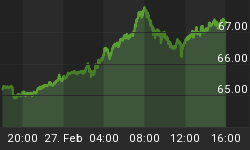This is why quantitative easing can never end:
Asian Stocks Slip on World Bank as Kiwi Drops; Yen Gains
Asian equities dropped, with the region's benchmark index headed toward a correction, and the yen rose to the strongest in two months against the dollar after the World Bank cut its global growth forecast amid concern central banks may pare monetary stimulus. New Zealand's currency weakened.
The MSCI Asia Pacific Index tumbled 2.6 percent at 11:16 a.m. in Tokyo, erasing this year's gains. Japan's Topix Index sank 4.1 percent and the Shanghai Composite Index declined 3.1 percent after a three-day break. Standard & Poor's 500 Index futures slid 0.4 percent after the gauge retreated for a third day in New York. The yen gained at least 1.1 percent against its 16 major peers, reaching 94.45 per dollar, the strongest since April. The so-called kiwi weakened 0.8 percent. Wheat and rubber dropped, while metals rose. Bond risk in Asia climbed.
The global economy will expand 2.2 percent in 2013, the World Bank said yesterday, paring a January forecast of 2.4 percent. The Federal Open Market Committee meets next week after the Bank of Japan this week left its lending program unchanged. Global stocks have plunged 5.2 percent from their May 21 peak this year on speculation the Fed may ease stimulus.
"People are still trying to assess the prospects, likelihood, and timing of tapering from the Federal Reserve," Chris Green, an Auckland-based strategist at First NZ Capital Ltd., a brokerage and wealth management firm, said. "Markets want stability in the economy but they also want unlimited stimulus. The two can't continue to exist together."
Trillions Erased
More than $2.5 trillion has been erased from the value of global equities since Federal Reserve Chairman Ben S. Bernanke said May 22 the Fed could scale back stimulus efforts should employment show "sustainable improvement." The Bank of Japan left its lending program unchanged this week, adding to concern central-bank support will be pared back. The Nikkei's volatility index rose for the first time this week today.
Australia's S&P/ASX 200 index slid 1 percent, declining for a second day. Hong Kong's Hang Seng Index tumbled 3.8 percent after being closed for a public holiday yesterday.
To summarize: after three years of the most aggressive deficit spending and monetary ease in human history, the global economy is...slowing down. Meanwhile, central bankers, finally realizing that their random lever-pulling has created asset bubbles without any actual new wealth, and that the likely (very ugly) aftermath might make them unpopular in retirement, are trying to untangle the mess they've created.
But even hinting that they might, at some point in the distant future, consider planning to discuss a timetable for eventually gradually phasing in a slightly lower heroin dosage has sent the global financial junkie into a fit of anticipatory withdrawal. Like any good enabler, the bankers will of course respond that they were misquoted and that easy money is now a permanent feature of the modern world. So relax, everything's going to be okay. Go back to your derivatives trading, and have a little more leverage on us.
Now, there's no way to know if this is that time, but a time is coming when things are so complex and the moving parts are moving so quickly and erratically that no policy response will make a difference. When that time finally comes it will look a lot like tonight's Asian markets.















